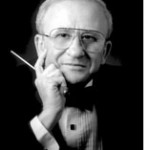By David Amos
 SAN DIEGO–I quote to you a couple of paragraphs from the Musical America Worldwide website of October 29, 2010:
SAN DIEGO–I quote to you a couple of paragraphs from the Musical America Worldwide website of October 29, 2010:
CAPE TOWN OPERA TO GO TO ISRAEL
Johannesburg. Cape Town’s Opera troupe is rejecting a call from retired Anglican archbishop Desmond Tutu to cancel a performance in Israel scheduled for November of this year (It happens to be George Gershwin’s Porgy and Bess). Tutu, who earned a Nobel for his peaceful opposition to apartheid, has compared Cape Town Opera’s planned visit to international artists performing in apartheid South Africa. He said Israel is “luring international artists to the Tel-Aviv Opera House to advance its fallacious claim to being a civilized democracy.”
But the opera’s managing director Michael Williams said in a statement that the opera company would not take a political position and cut cultural ties with Israel or the Palestinian territory.
***************
There is a lot more to the story, and if you wish to find expanded information on the subject, Google “Cape Town Opera”, where you will find several articles and wider coverage.
Here we go again: Politicians meddling with the arts, and as we have seen in the past, artists meddling in politics.
Maybe we find such actions justifiable if the cause is one which we sympathize. And conversely, we are outraged when the opposite happens. I am no fan of Rock ‘n Roll, but it bothered me when rocker Elvis Costello canceled his trip to Israel, for reasons similar to the above.
For certain, Palestinians are winning the propaganda war. This subject has been widely covered, and in much greater depth by other writers and analysts; but the painful consequences and incidents continue.
I recall that in the mid-1980’s, I was talking to an influential Israeli, who in a single sentence said a lot about this situation: “For the price of a single fighter airplane, the Israeli government could set up an office of information and counter-propaganda, which could easily neutralize all the bad press and unjust criticism which the country has been receiving; but, I guess, they don’t care enough to do something about it.”
I know of many Jewish people who care about Judaism, but hate Israel for its “crimes and excesses.” Would an aggressive, but properly strategic dissemination of information dispel the negative emotions of disbelievers, both Jewish and Gentile? Possibly, but as it is said, the worst battle is the one that is not fought.
In music, we have great artists who have brought praise and at times, reproach for their political positions.
Leonard Bernstein, an unabashed liberal, supported Israel and Judaism vociferously around the world, although he also raised many eyebrows with his personal behavior in Judaic matters and his friendships with borderline anti-Semitic radicals.
Let’s not get into the Richard Wagner controversy at this time, but the Third Reich brought out strong positions in hundreds of musicians, some pro and some con. Many arguments still linger today as to which musicians who opted to stay in Germany from 1933-45 were Nazis or hapless victims of circumstances. Was it politically expedient to remain there, or were their inner feelings never fully revealed?
For sure, conductor Herbert Von Karajan stayed in Germany, carried two Nazi membership cards, and in spite of some flack at the end of the war, lived to have a fruitful career, supported by many Jewish friends and associates. His relationship with the Israel Philharmonic was spotty at best.
Conductor Arturo Toscanini was violently against Nazism and Fascism. As it is well known, he went to Palestine in 1936 to rehearse and conduct in concerts the fledgling Palestine Symphony, which later became the Israel Philharmonic. True to his visceral artistic temperament, he had no patience with musicians who served the Hitler regime. He bluntly told conductor Wilhelm Furtwangler, “If you stay in Germany, you are a Nazi!” Much has been written on Furtwangler’s controversial position.
The legendary violinist Yehudi Menuhin was called “a great musician, but not a very good Jew.” For the sake of musical purity, he refused to support Israel in any manner, or even to sympathize with Jewish causes. Is the label of “humanitarian” justifiable, or just a cop-out?
This sad controversy continues, but it is clearly evident that public figures are often compelled to take strong political stands to promote their passions. But, as you see, it is not always crystal clear, and many of us even chastise them for taking a neutral position, at times when we hope and expect them to support our case and beliefs.
What is your opinion? Let us know.
*
Amos is conductor of the Tifereth Israel Community Orchestra and has guest conducted professional orchestras around the world.